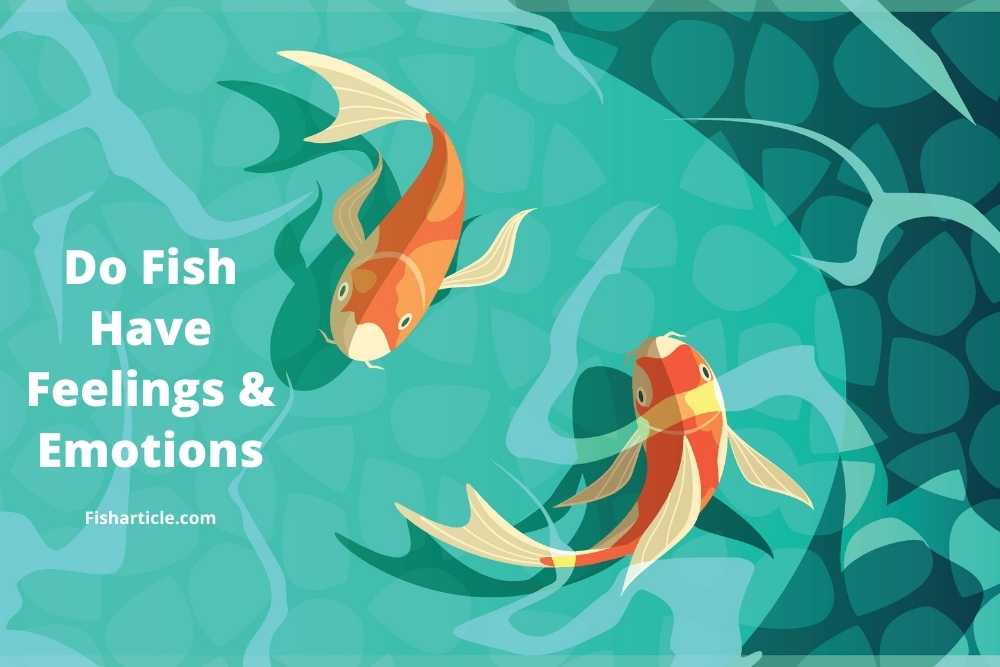Research also shows that fish have impressive learning process capacities, and these abilities support a wide variety of sophisticated behavior.
Many species of fish have the ability to perform complex navigational tasks via retained memories. Other fish can remember which wearisome their opponents were by discovering when they have been fought in the past.
What we do know is that fish can communicate with each other through movement, sound, and scent, which suggests that they may have some form of emotion.

The ability of emotions and cognition to furnish mammals and non-human animals the capability to pattern and match reflexes as well as promote an adequate level of flexibility in behavior has regularly been investigated in species of fishes.
Partial research on the behavior of the group of mammals is indicative of emotion and cognition. Thus far, the evidence implies that these similarities between brain-behavior relationships are similar to those of a phenomenon observed in mammals: the data additionally suggest that behavior patterns that operate similarly to emotions and cognition differ between fish species.
From a revenue point of view, knowledge of the species’ variance may potentially assist us in designing optimal living conditions for fish often kept by humans.
Argumentation has been made to support and disprove the idea that animals other than humans have the ability to feel emotions and awareness.
Those claiming, for example, that fish do not possess this trait point out that their brains are small and simple, lacking a cerebral cortex that performs long processing and decision-making.
Whenever fish are concerned, logic points to the view that they possess little capacity for long-term memory storage and recall and possess only minimum behavioral variety.
According to this view, the response of fishes to unfavorable situations might be more than purely random responses but still have the least emotional impact.
They’ll strongly reject the theory of fish having no emotion and consciousness, for there is more than one reasonable reason for why this is the case.
As an example, the goldfish brain is small and organized in a different way than that of the mammal brain.
But it also has structures with identical evolutionary origins as parts of the mammal brain we now know play substantial roles in the course of emotions (the amygdala) and supporting learning (the hippocampus).
Do Fish Have Feelings & Emotions
Fish don’t have a neocortex (the part of the brain that helps humans think and reason), they can’t have emotions the way we do.
One thing that is clear is that fish can respond to their environment in different ways. They can change their behavior depending on what is happening around them.
For example, if a fish is in an area with a lot of predators, it may swim faster or hide more often than a fish in an area with fewer predators.
This shows that the fish are reacting to their environment, which suggests that they may be able to feel something.
There are also some studies that suggest that fish can learn from their experiences.
Do Fish Feel Pain
One study found that fish do respond to stressors in their environment. For example, when some fish were exposed to a predator, they experienced an increase in heart rate and cortisol levels.
This suggests that fish are able to feel fear and anxiety. Another study showed that male zebrafish tend to be more aggressive when they are around female zebrafish who are ready to mate.
Do Fish Feel Sad
The researchers found that when the zebrafish were separated from their friends or family, they exhibited signs of sadness, such as staying still for longer periods of time and lessening their interactions with other fish.
This research could have a big impact on how we view fish and how we treat them in captivity. It also raises questions about how much we really know about the emotions that these creatures experience.
Every day, we see fish swimming in tanks in pet stores and in our own homes. We often think of fish as mindless creatures that don’t feel pain or sadness, but a new study is turning that idea on its head.
Researchers at the University of Bristol have found that fish do feel sad and can experience negative emotions. The team did a series of experiments in which they put fish in different situations and observed their behavior.
They found that when the fish were separated from their group or when they were exposed to stressors like bright light or loud noises, they acted sadder than when they were in normal conditions.
The researchers also found that the fish appeared to comfort each other, swimming close together and sharing food.
This research suggests that we need to rethink how we treat fish and show that they are capable of experiencing complex emotions just like humans.